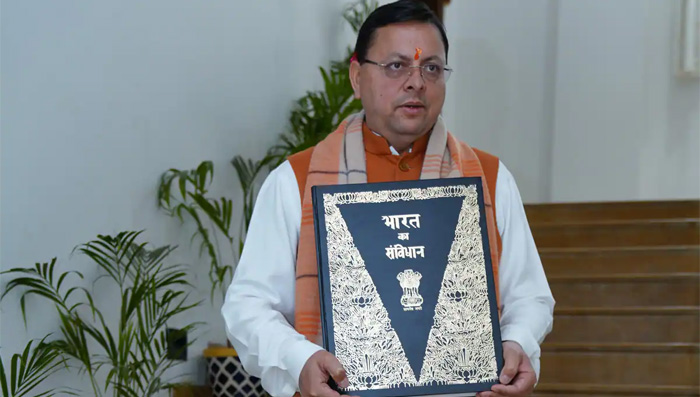What Uttarakhand Uniform Civil Code covers: From live-in relationships to marriage to death
Uttarakhand chief minister Pushkar Singh Dhami on Tuesday introduced the Uttarakhand Uniform Civil Code in the state assembly.
The proposed law would be applicable to all residents of the state, except the Scheduled Tribe listed under Part 21 of the Constitution. Here are the salient features of the proposed law:
MARRIAGE AND DIVORCE
The law will be applicable for all residents of Uttarakhand, defined as one staying in the state for one year or more and getting benefit of central or state government schemes
The age of marriage is defined at 21 for men and 18 for women. At the time of marriage, men should not have a living wife, and women a living husband, and both the couple should be of “sound” mind.
Marriages cannot be performed under prohibited relationships, which covers immediate family of the father, mother, grandfather and grandmother.
The law allows marriages under Nikah (Muslim marriage), Saptpadi (Hindi marriage), Anand Karaj (Sikh marriage) or any other religious form not otherwise prohibited under the proposed law.
Every marriage has to be registered within 60 days. Three months jail term and fine of ₹25,000 will be awarded for wrong information during marriage registration and ₹10,000 fine for not registering the marriage.
No marriage can be dissolved without a court order or else there would be punishment of up to 3 years in jail. Marriage in violation of the condition specified for the same will result in jail term of six months and penalty of up to ₹50,000.
Divorce pleas are to be filed in specified courts and the decree is to be issued within 60 days. Both men and women will be entitled for alimony and maintenance. Appeal allowed in high court in case of non-consent orders of the family court.
LIVE-IN RELATIONSHIP
All live-in relationships will have to be registered with the registering authority notified under the law. Live-in relationships under prohibited categories, and if one of the partners is married, will not be allowed. Children born out of live-in relationships will have all legal rights.
If any of the partners is less than 21 years old, the registrar will inform the parents of the couple and forward the registration to the local police station. Not registering live-in relationships could result in jail of up to three months and fine of ₹10,000 or both.
In case of termination of the live-in relationship, the registrar will have to be informed, who will then inform the other partner. In case, a man deserts a woman in a live-in relationship, he would have to pay maintenance as decided by the competent authority to the woman.
INTESTATE SUCCESSION
The immediate family members of the person, who died without leaving a registered will, will get equal share of the property. In case there is no immediate family of the deceased person, the property would be equally shared between second line, which would be immediate first cousins from paternal side. If there is no claimant, then others would be invited to stake claim of the property.
Sons and daughters will have equal share of the property and special provision protecting Hindu United Family (HUF) has been provided in the law. State government will appoint authority to decide on sharing of property between claimants.


Comments are closed.